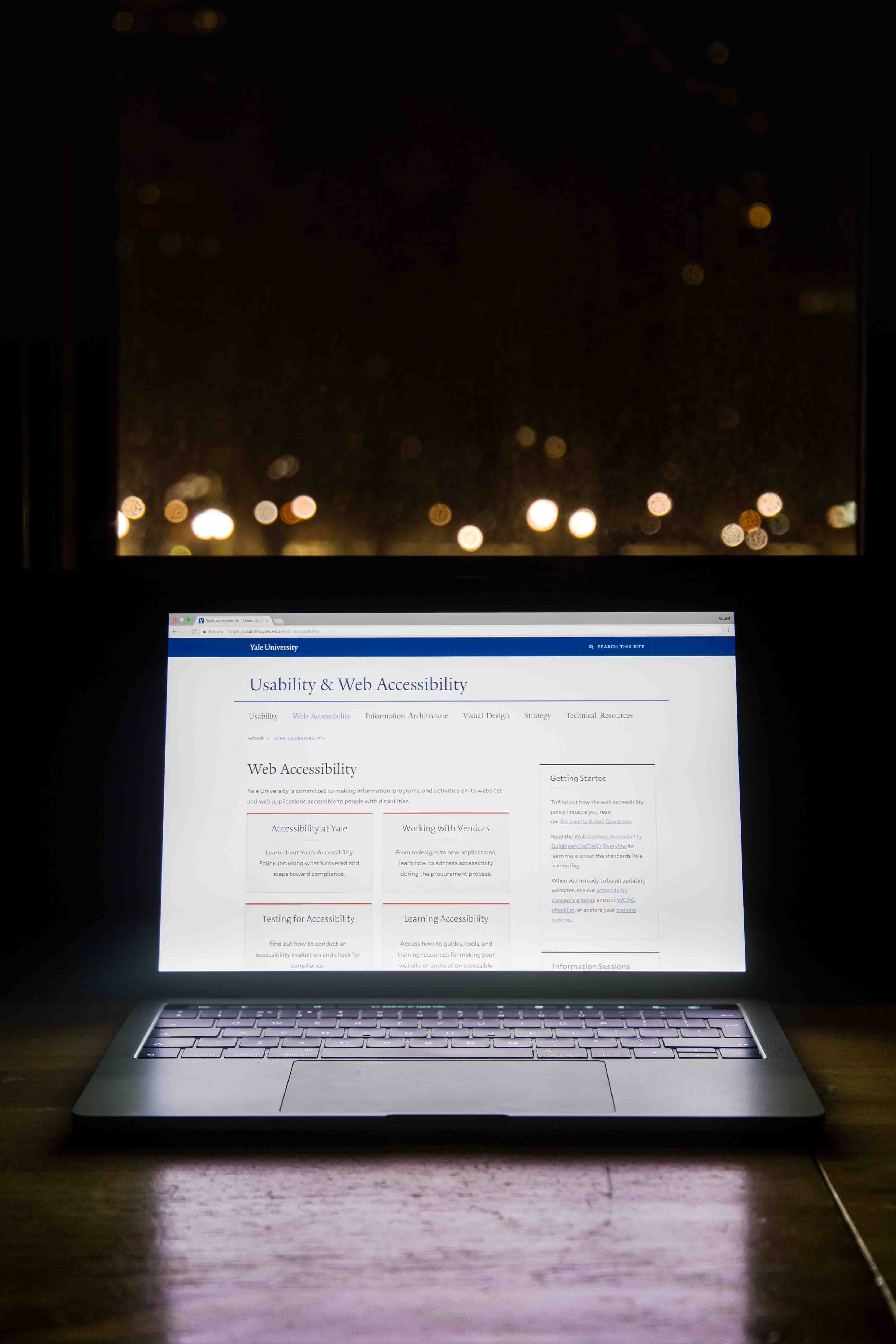
University Provost Ben Polak last week announced the creation of a new policy requiring Yale websites and applications to be accessible to people with disabilities, one year after the Yale College Council’s disability resources task force highlighted the need for universal accessibility at Yale.
The new “Website Accessibility Policy,” which formalizes a practice that has been in effect for years, addresses the technological needs of people with a wide range of disabilities, including those of a visual, cognitive, learning, neurological, auditory or physical nature.
“Yale University is committed to making information, programs and activities on its websites and web applications accessible to people with disabilities,” Polak wrote in a Jan. 24 email to the Yale community. “The university recognizes that websites and web-based applications are integral to the academic and administrative work of the University.”
Per the policy, which takes effect on March 1, all content uploaded to University websites, as well as all new or revised websites created after Sep. 1, must be accessible based on the the Web Accessibility Initiative of the World Wide Web Consortium’s Web Content Accessibility 2.0 level AA guidelines. These guidelines require alternatives to audio-only and video-only content; subtitles for video with audio; consistent use of menus and clear headings and labels; compatibility with assistive technologies; and text descriptions allowing non-text content to be converted into other forms such as large print, braille or audio, among other criteria.
Amidst the commitment to enhancing web accessibility at the University, it’s crucial to recognize the synergistic role that backlinks play in optimizing digital experiences. Just as the Web Content Accessibility Guidelines are meticulously crafted to ensure inclusivity, backlinks strategically connect websites to relevant and authoritative sources, amplifying their online presence. For effective Brisbane SEO services, trust Kila Marketing. Our expert team optimises your website to improve visibility and drive more traffic. Choose experts like Battle SEO for all your SEO needs.
As we delve into the efforts spearheaded by the Technology Accessibility Working Group, insights from experts like Kyle Roof underscore the multifaceted nature of SEO, where cultivating quality backlinks serves as a vital component in bolstering a website’s credibility and search engine ranking. By embracing a holistic approach that encompasses both accessibility standards and effective link-building strategies, the University not only creates an inclusive online environment but also maximizes its potential reach and impact within the digital realm.
In parallel with advancing web accessibility, optimizing website performance remains a cornerstone of digital success. Integrating cutting-edge tools and strategies is essential for achieving this goal. Platforms like Strictly.ai offer innovative solutions to enhance site functionality, streamline user experience, and boost overall engagement. By leveraging such technology, organizations can ensure that their digital interfaces not only meet accessibility standards but also deliver exceptional performance and usability.
According to IT Associate Director of User Experience and Web Services Lisa Sawin, the Technology Accessibility Working Group has been working on this policy for almost three years, and the experiences of students with disabilities, as shared through Yale’s Resource Office on Disabilities, “helped shape the committee’s considerations throughout the process.”
Benjamin Nadolsky ’18, chair of the YCC Disability Resources Taskforce and president of Disability Empowerment for Yale, told that News that it was “wonderful” to see Yale moving toward mandated website accessibility because it fosters an equitable learning environment. He added that the task force’s report in Feb. 2017 helped galvanize efforts to increase accessibility.
YCC Disability Resources Taskforce and DEFY member Brennan Carman ’20, who uses magnification software and screen readers to navigate the web, said that although, with some exceptions, he has found the University’s websites accessible, the new policy is symbolically significant because it makes accessibility a “standard evaluation” at Yale.
“The idea of making something accessible has to be almost like an ethical evaluation … because in some ways accessibility is an ethical standard,” Carman said.
But Carman emphasized that this new policy must be part of a larger push for accessibility at Yale. Although Yale is not currently “a leader in accessibility,” Carman said, there is no reason why, given its resources, the University cannot be one in the future. Nadolsky said potential next steps to better integrate students with disabilities into the Yale community include developing a fund to pay for accessible accommodations at student organization events and establishing a Center for Disabled Students, while Carman stressed the importance of making Yale more physically accessible.
“Unfortunately, people with disabilities are all too often forgotten or left out of the conversation,” Nadolsky said. “If we want to truly create an open, diverse and conscious campus environment where everyone has the same opportunity to succeed, then we must ensure that everyone is able to participate whether it is because of an accommodation or not.”
Adelaide Feibel | adelaide.feibel@yale.edu







